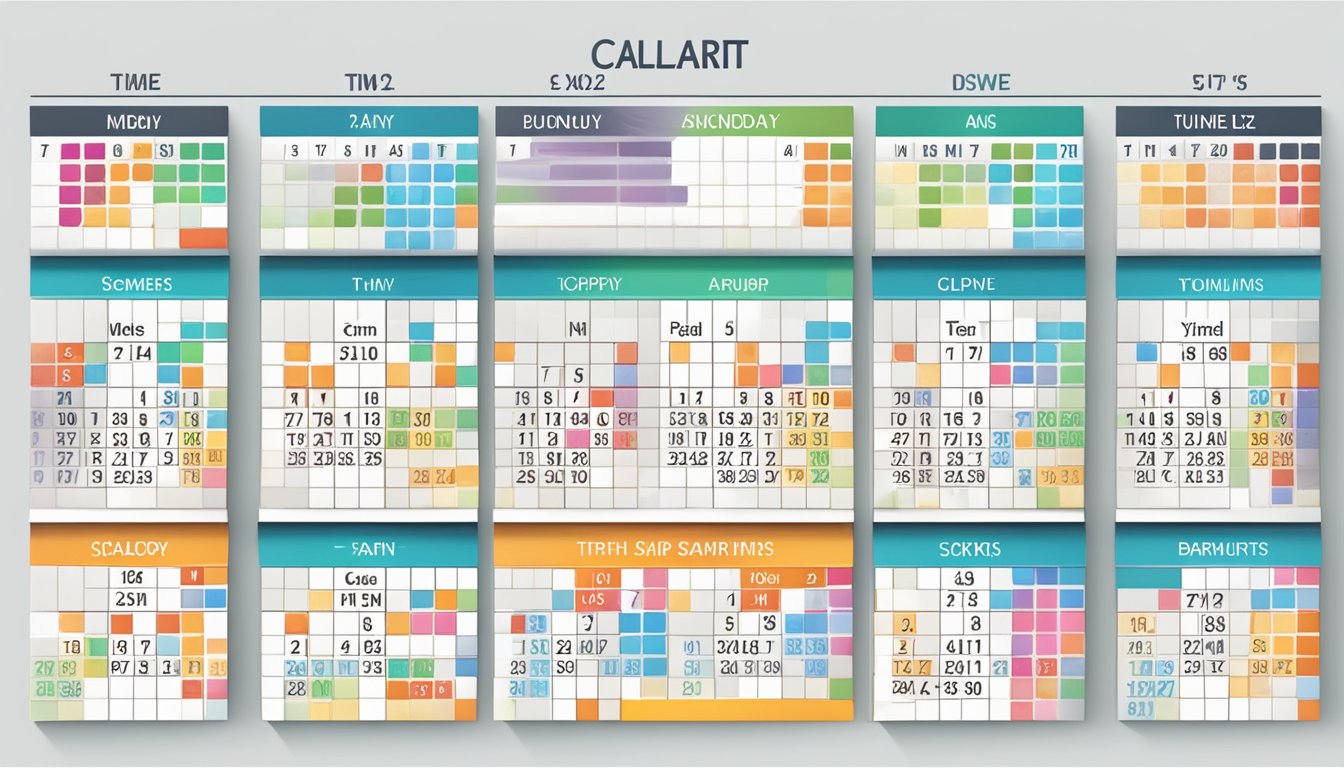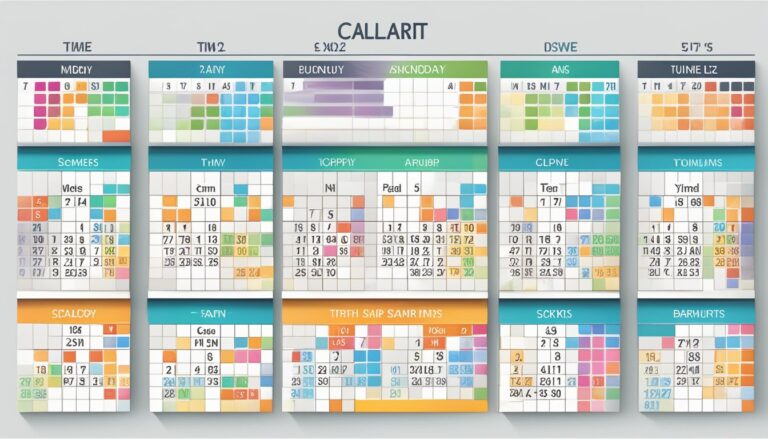Understanding Schedule

A schedule is a crucial element in project management and everyday planning.
It is a list or plan that outlines the time allotted for different activities or events.
In the insurance industry, a schedule helps in organizing tasks and ensuring timely transactions.
In the insurance sector, a schedule can take various forms.
It might be a timetable that lists inspection dates, policy renewals, or client meetings.
Noun: As a noun, a schedule is a written document that details a series of things expected to occur within set timeframes.
For instance, an insurance schedule might show due dates for premium payments and policy evaluations.
Verb: When used as a verb, “to schedule” means to plan or arrange something to happen at a specific time.
You might need to schedule an appointment with a client or schedule audits at regular intervals.
Uses in Insurance
- Client Meetings: Organizing a timetable for client reviews and consultations.
- Policy Renewals: Ensuring that policy renewals occur on time is critical for continuous coverage.
- Inspections: Scheduling inspections can prevent delays and manage risk assessments effectively.
Importance of Timing
Proper scheduling ensures that tasks are completed within their designated times.
This helps in streamlining operations and maintaining client satisfaction.
For more detailed definitions and terms related to schedules, you can refer to schedule definition.
Tables and lists help clarify information efficiently.
Here’s a simple example:
| Task | Time Allotted | Frequency |
|---|---|---|
| Policy Review | 2 hours | Quarterly |
| Client Meeting | 1 hour | Monthly |
| Inspections | 3 hours | Annually |
By leveraging a well-organized schedule, you can manage your time and tasks more effectively, ensuring a smooth workflow in your insurance business.
Schedule Definition in Practical Application

When working in insurance, organizing a schedule effectively ensures that tasks flow smoothly.
Setting Up Meetings and Events
You need to arrange schedules for events and meetings.
Applying schedules helps you manage appointments and client interactions efficiently.
Use a project schedule to keep track of important dates and deadlines.
Automatic Payments
Setting up automatic payments can streamline your processes.
By scheduling payments, you can avoid late fees and maintain good standing.
This involves arranging sequences and dates for financial tasks.
Inventory Management
Schedules play a crucial role in managing inventory.
You can organize your stock levels, ensuring materials and resources are available when needed.
This often involves a sequence of tasks to maintain a smooth workflow.
Real-World Example
Consider a case study where a company uses a well-planned schedule to handle claim processing.
Each step in the sequence is timed, reducing delays and improving customer satisfaction.
Practical Application in Projects
In project management, a schedule helps you track progress and allocate resources.
This ensures that tasks are completed on time, avoiding budget overruns.
For example, you might set a timeline for a project that includes detailed schedules for each phase.
Preferred Provider Arrangements
In practical applications, you might use preferred provider arrangements to strategize care and cost management.
By scheduling appointments and services with preferred providers, you can optimize both patient care and expenditures.
Learn more about examples of preferred provider arrangements.
Using schedules in insurance processes ensures that you handle everything from meetings to project management efficiently.
Associated Concepts and Terminology

When discussing schedules in the insurance industry, several key concepts and terms help to build a complete picture.
Related Terms and Synonyms:
- Agenda: A list of tasks or activities to be completed, often used interchangeably with schedule.
- Timeline: A visual representation of a schedule, showing the order and timing of events.
Key Concepts:
- Activities: Specific tasks or processes that need to be accomplished. An activity can have an assigned resource or cost, as seen in Plan Academy’s glossary.
- Milestones: Significant events within a project, such as the completion of a major deliverable. Milestones often have zero duration.
- Resources: The personnel, equipment, or materials used to complete activities.
Translations:
- Spanish: Horario
- French: Horaire
- German: Zeitplan
- Italian: Programma
Language Variations:
- British English: “Timetable”
- American English: “Schedule”
Terminology:
- Actual Cost: The real amount spent on labor or materials, highlighting the importance of accurate financial tracking.
- Risk: Not just negative; risks can also present opportunities, leading to gains if managed well.
- Risk Appetite: The level of risk your organization is willing to accept, balancing potential gains.
An effective schedule is vital to project success as it lays out what needs to be done, by whom, and by when.
Understanding these associated terms and concepts ensures better planning and execution in the insurance industry.






